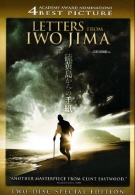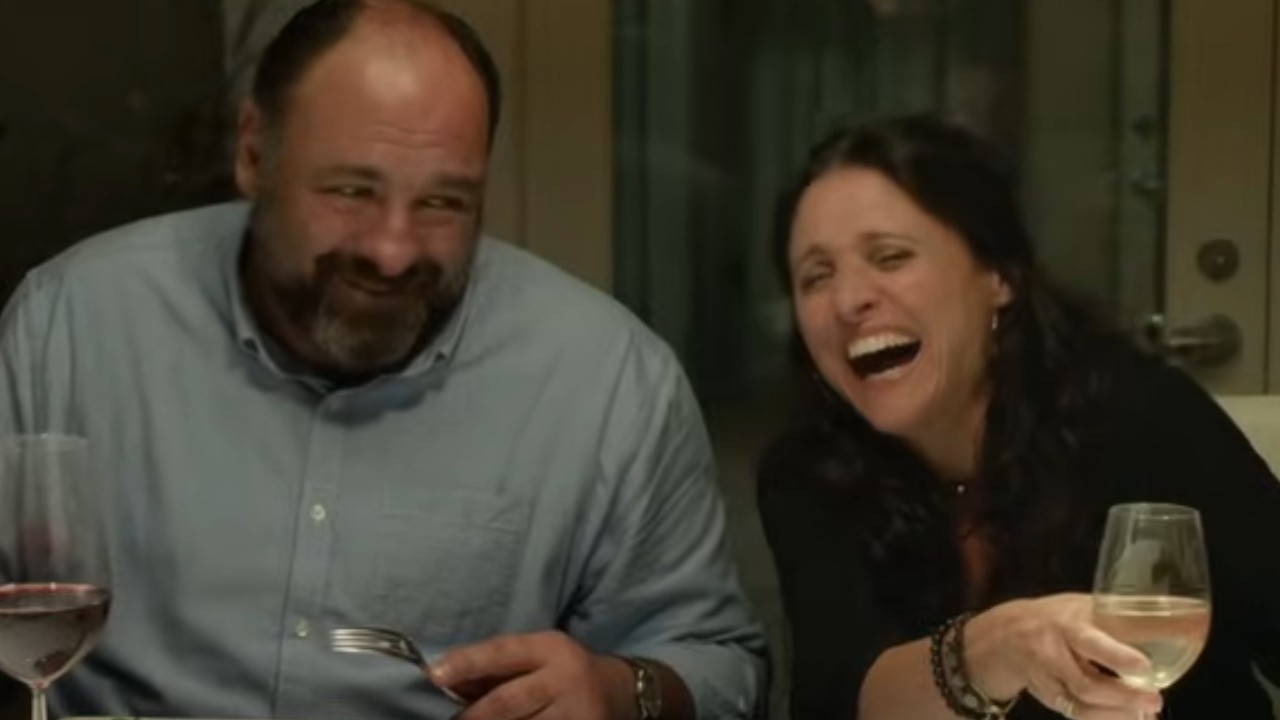Clint Eastwood really found the Battle of Iwo Jima interesting. While preparing the movie Flags of Our Fathers, focusing on the effect of the grueling battle and its aftermath on the American soldiers who hoisted the flag in the famous photograph, Eastwood also found he wanted to tell the story of the hopelessly outnumbered and ill-supplied Japanese soldiers. Rather than scraping Fathers, Clint felt lucky enough to make Letters from Iwo Jima at roughly the same time. War is hell. Every war movie made in the last twenty years seems dead set on driving that through your skull. John Wayne and Audie Murphy lied to you. There was no running bravely over the hill to take out the evil Nazi and make the world safe for liberty and democracy. Instead, scared boys and men do whatever they can to stay alive and get home; wishing only that the whole damn thing was over soon.
In order to balance the scales from years of rah-rah war cheerleading by Wayne and others, directors have to add rocks to the other side. The biggest boulder in recent years is Clint Eastwood’s Letters from Iwo Jima.. Eastwood seems intent on showing the bleak horror of war and absolutely nothing else. The twist, of course, is this is the bleak horror as experienced by the Japanese defenders of Iwo Jima. This time the Americans are the faceless bad guys, the invaders, the pitiless shadows behind the machine guns and bombers.
The use of a Japanese point-of-view for the movie isn’t as groundbreaking as it seems. It still pushes the same themes seen in almost all recent war movies - that the enemy is just like you; a guy with a wife and an unborn kid, a commander who wants to both do his duty and protect his men, a man who did so much before this battle and will never do anything after it. Eastwood doesn’t create a new type of war film or even expand the current genre; he just sings right off of the current hymnal in a voice true and clear.
As much as I didn’t want to like this movie for being like so many recent war movies, I couldn’t help be impressed by Eastwood’s craftsmanship. He pulls every ounce of color out of the picture to give you a washed out landscape that matches the film’s tone. The performances, led by Ken Wantanabe as the General in charge of the island’s defense and pop singer Kazunari Ninomiya as a new conscript, are powerful and realistic. There are heartbreaking moments of connection between these men and the other soldiers which stay with the viewer after the film’s conclusions. The Japanese soldiers dig for worms to eat and drink foul liquids in claustrophobic and dark places while being told that they fight for their honor and homeland. The inevitability of their defeat causes some to want to give their death “meaning” while others wonder why they must give their lives for a lost cause. It becomes a movie about humanity rather than about men from one particular country.
Eastwood has done everything right in terms of look, pace, and tone. Everything you could ever want in an anti-war war film is up on the screen. Still, the film’s inability to break new ground keeps it from being a classic of the genre. Instead, it is a well made entry into what has become a very crowded field. I have two pet peeves when it comes to DVDs and Letters from Iwo Jima managed to pull a double play. Movies should have commentaries. Even if the director doesn’t want to do or doesn’t have time, someone should talk about something on the commentary track. The second is that movies should be two disc special editions when they actually have two discs worth of material. It shouldn’t be based on the fact that movie is “important” and is “worthy” of the second disc. If you can cram all the extras onto one disc, do that.
It should be obvious that this disc contains no commentary. In fact, the only language track on the film disc is the Japanese language track. No matter what language you speak, you have to hear the characters speak in their native tongue and read it in yours on the subtitles. That’s not really a big deal, it helps the overall experience not to see Ken Wantanabe’s mouth open up and hear French tumbling out. There is nothing else on the film disc though; all the extras are contained on the second disc.
The biggest extras are two relatively routine making-of documentaries, each about 20 minutes long. The first, called “Red Sun, Black Sand: The Making of Letters from Iwo Jima," cuts interviews with Eastwood and the rest of the main creative team into some behind the scenes footage and film clips. Eastwood talks briefly about why he wanted to make the film and then each creative person covers their area of expertise. In keeping with the strong acting performances seen in the movie, the casting is given its own documentary, called “The Faces of War: The Cast of Letters from Iwo Jima.” The main actors are interviewed about their experience on being cast and making the film while the casting associates talk about some of the challenges in casting Japanese actors.
Your Daily Blend of Entertainment News
The only other extras, besides a trailer and a four minute slide show of production stills set to music, are coverage of the movie’s world premier and press conference in Tokyo in November 2006. They include Eastwood and the stars answering questions both on the red carpet in front of the press. Most of the questions are pretty standard with the added twist of throwing in some “how did you like working with Japanese actors” queries for Eastwood. His standard response was “they were great” or variations. It’s not particularly illuminating but it is somewhat unusual for a DVD to have that stuff so kudos to them for trying something new.
The extras never really make up for the lack of a commentary and the spreading one disc worth of material to two discs. It is one of those very professional packages that doesn’t do much to enhance the movie. In fact, if you’re picking this up on Netflix or another service that splits multi-disc packages, you’re better off just getting the movie and not using up one of your limit on the extras disc.

